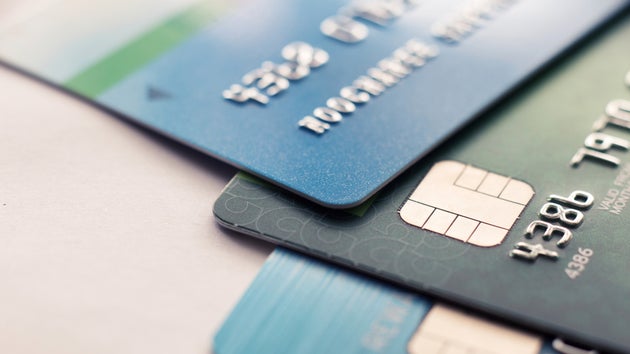Table of Contents
What is a chargeback?
This form of compensation was instaured by financial institutions in order to protect credit card users against misuse. If a credit card holder finds a payment on his credit card statement which he has not made, he has the possibility to demand the reimbursement, within a certain period of time. The amount will be debited from the merchant and credited to the account of the client’s account.
Reasons for chargebacks
A customer might contradict charges, leading to a chargeback, based on factual reasons e.g. the contractual terms or goods were not delivered. Likewise, a fraud might have been committed. In order for the cardholder to cancel the charges or obtain a reimbursement, a chargeback reason must be provided.
The most common reasons associated to a chargeback are:
- The product differs from the description or has defects.
- The cardholder has not received the goods/service/credit.
- Charges occurring after a subscription or membership was cancelled.
- The charges cannot be assigned.
- The customer denies having made the transaction in the first place.
- The credit card transaction was not submitted within the agreed time.
In the case of fraudulent intent of a third party to make a transaction, the actual cardholder can quickly get his money back. The same applies in the event that the he is unsatisfied.
Chargeback reason codes
The reason provided for chargebacks are codified. These codes vary from one credit card company to another. There are four different dispute reason categories: fraud, authorisation, processing error and consumer disputes. For merchants, it is wise to categorise chargebacks by their three main causes: merchant error, criminal fraud, and friendly fraud. Doing so helps make prevention and management more effective.
The chargeback process
After the transaction, the credit card holder benefit from a 120 days period to contest a charge. If the customer makes a request, the credit institution checks whether the grounds to the demand are valid. Then, the claim is forwarded to the acquirer bank. The amount of the disputed transaction will now be credited to the merchant account.
The dealer also has the possibility to contest the recovery. In this case, the trader must prove the validity of the disputed transaction with transaction documents (including a copy of the purchasing document). After the credit institution has reviewed the submitted documents, it forwards it to the issuing bank. If no agreement can be reached, the case goes in arbitration. Then, the credit institution’s arbitration committee checks all information and submitted documents. Usually, the decision of the committee is final and must be accepted. The "loser" of the process is responsible of the costs.
Chargebacks - consequences for traders
Chargebacks mean not only lost sales, but also hours worked and costs. In the worst case, the acquirer bank can choose to terminate the business relationship.
Additional weight of chargebacks
Chargebacks are an additional burden for merchants. In order to identify the reasons for a chargeback, to verify customer statements or to clarify disputes, employees to work an increased amount of time, which is reflected in the personnel costs.
Chargebacks costs
In addition to the personnel costs, the process implies further costs for the dealer. For the merchant, the amount received in the initial transaction is canceled. In addition, the credit card issuer or the supervising bank charges a processing fee by the acquiring bank. These fees are meant to cover the administrative costs associated with the chargeback process, but for the merchant, the immediate result is additional lost revenue. General investment costs, e.g. system costs, should also be considered.
How much does a chargeback cost?
The amount of a chargeback fee can vary. The acquiring bank and the processor play a role in determining the amount. The type of goods or services offered can also affect the fee, among other factors. On average, the fees typically fall somewhere between $20 and $50, although high-risk merchants can expect to pay much more.
Chargeback rate
In addition to these financial negative effects, dealers also face a deterioration of their chargeback quote. From a certain point (approx. 2%), the acquirer bank ends the business relationship and withdraws the merchant’s authorization number. For this reason, reclamations should be handled quickly, issuing a refund (credit to the credit card account of the customer) when necessary.
How to calculate the chargeback rate?
The chargeback rate is a simple chargeback-to-transaction ratio. To calculate it, one simply needs to divide the total number of chargebacks by the total number of transactions within a monthly period. MasterCard calculates one month divided by the next month, while Visa calculates chargebacks divided by transactions from the same month. A 1% chargeback rate is the industry-standard maximum. That equates to one chargeback per 100 successful orders. And that 1% is usually the absolute maximum allowed for direct merchant accounts.
Chargeback protection measures for merchants
There are a number of measures to which traders should pay attention to protect themselves against the various possible criminal activities.
Consumer fraud prevention
Consumer-specific fraud prevention uses consumers data to minimize the risks. In order to verify the client’s identity, addresses are verified. Customers with a negative are excluded through a blacklist.
Credit card fraud protection
Card-based prevention measures are mostly used by traders for orders of higher-quality products or with an international delivery address. Through the address verification system (AVS), the validity of the map data (eg, the address) and the card verification code (CVC) are checked.
The 3D Secure process also increases security when shopping online. MasterCard has developed MasterCard Securecode, whereas Visa uses Verified by Visa. The customer is redirected to these platform in order to complete the desired transaction. A code then ensures the buyer’s authentication. Payment is processed after the code is successfully entered. Alternatively, a single registered password can be requested, this is called the static method. In a dynamic process, an individual code is individually generated for each transaction.
Accountfraud prevention
Account-based fraud prevention is mainly used by dealers with direct debit, to reduce the chargeback ratio. The bank identification number as well as the logical composition of the account numbers are checked. In addition, the verification of the account information may reveal negative elements – such as card blocking and open chargebacks.
Here you can find more information about Fraud Management in online payment.
Avoid chargebacks by improving customer service
If customers are not satisfied with the products or delivery, they often contact their bank to trigger a refund. Problems with the customer could be clarified quickly and simply with the customer service and thereby avoid possible chargebacks. A clear and direct communication of the contact details and short response time are crucial to reduce the cost and effort of chargebacks.










